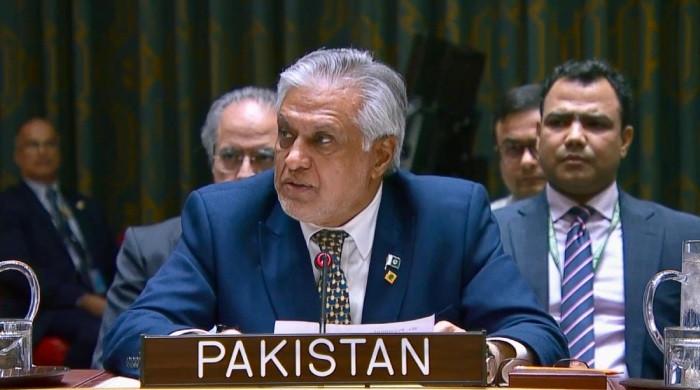NA bill seeks punishment for unfair eviction of women from homes
Bill, tabled by PPP MNA, proposes up to six-month jail, Rs200,000 fine for offenders
August 12, 2025

- Cases to be heard by first-class magistrate
- PPP's Sharmila Faruqui presents bill in NA.
- Bill sent to committee for further review.
ISLAMABAD: The National Assembly on Tuesday saw the introduction of the Criminal Law (Amendment) Bill 2025, aimed at making the unfair eviction of women from their homes a punishable offence.
The bill, presented by Pakistan People’s Party MNA Sharmila Faruqui, proposes that if a husband or any household member forcibly removes a woman from her home without justification, they will face imprisonment ranging from three to six months and a fine of up to Rs200,000.
According to the proposed amendment, trials in such cases will fall under the jurisdiction of a first-class magistrate. The move seeks to amend several provisions of the Pakistan Penal Code to provide women with stronger legal protection against unjust displacement.
The deputy speaker referred the bill to the relevant committee for further consideration.
The bill's text mentions that it fills an important gap in the legal protection of women at home. "Many women in Pakistan face the risk of being forcefully removed from their homes due to imbalances in power and traditional beliefs that often support male dominance."
This law, as mentioned in the text, would empower women by affirming their right to feel safe and secure in their own homes.
"By giving them legal options, it encourages women to stand up against domestic abuse without the fear of being displaced, creating an environment where they can live with dignity and equality."
The bill mentions that this amendment is a significant step towards changing societal attitudes by challenging traditional gender roles and holding husbands accountable for their actions.
"By making it a crime to unlawfully evict a wife, the law sends a clear message that such behaviour is unacceptable and will have consequences," it said.
"This could raise awareness about women's rights within families and communities, encouraging important conversations and promoting empowerment.
The potential legal penalties for offenders will also act as a deterrent, helping to create a safer space for women and fostering a culture of respect and equality in relationships."











